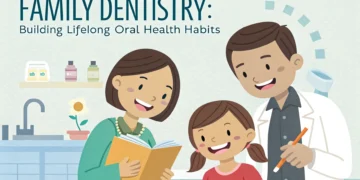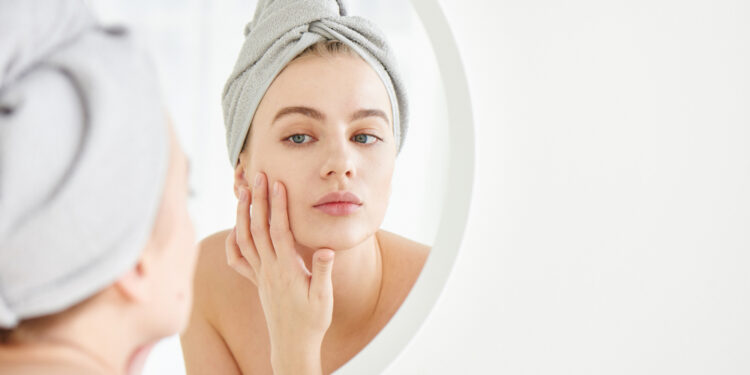Overview:
Atopic Dermatitis or Eczema as commonly known to many is a common chronic skin condition, which presents as dry, itchy skin with discoloration. Eczema is a condition of childhood that may persist in adulthood as well. It is more prevalent in females than males. Around 16.5 million people in the US have Atopic Dermatitis or Eczema. It is believed to affect an individual’s quality of life to a great extent if not treated in time. Although there is no definite treatment for this condition, participating in clinical trials may be a good option to opt for.
The focus of this blog will be discussing the causes, symptoms, and how Eczema impacts one’s mental and physical well-being.
What Happens In Atopic Dermatitis – The Itch Scratch Cycle:
As discussed earlier, Atopic dermatitis is a chronic skin condition that results from the inflammation of the skin. This results in a lot of itching and scratching, which leads to increased redness, swelling, cracking, and oozing of clear fluid which tends to go on in a cyclical manner. This is called the itch-scratch cycle of Atopic Dermatitis.
What is the duration of Eczema or Atopic Dermatitis?
Eczema is a chronic skin disorder that begins in childhood and lasts into adulthood. In other circumstances, it vanishes by the time you reach maturity. Yet, with careful treatment, the symptoms can be treated.
What Causes Atopic Dermatitis?
The exact cause of Atopic Dermatitis is not clearly understood. However, there are certain triggers for Atopic Dermatitis. As Atopic Dermatitis happens when the skin barrier is damaged, it results in exposure of the skin to a lot of irritants and allergens. Some of the triggers for Eczema include:
- Food items
- Stress
- Wool
- Heat and sweat
- Dust mites
- Molds
- Certain cleaning products
What Are The Symptoms of Atopic Dermatitis?
The most common symptom is itching and dryness of the skin. Other symptoms of Eczema include:
- Red patches
- Hard and thickened skin
- Oozing rashes
Eczema or Atopic Dermatitis Types:
Atopic Dermatitis: The most common type of Eczema is Atopic Dermatitis. It appears as a red rash and causes itching and dryness.
Dyshidrotic Dermatitis: This type of dermatitis is most usually developed on the fingers, scalp, palms, and soles of the feet. It produces itching, scaly areas, or flaky skin that turns red and cracks.
Nummular Dermatitis is characterized by circular, red, and itchy patches. It is most common on the lower leg and is more common in persons who have a history of dryness.
Stasis Dermatitis: This condition is usually seen on the legs and is caused by inadequate blood flow.
Contact Dermatitis: Specific allergens cause contact dermatitis.
How Is Atopic Dermatitis different from Eczema?
Contrary to what the majority think, Eczema is one of the types of Eczema and Eczema is a broader term for rash-like skin conditions. Eczema is caused by an allergic reaction that usually begins in childhood and continues into adulthood.
Living With Atopic Dermatitis:
Eczema may subside at times. The remission phase is this time period. When things worsen, this is sometimes referred to as a flare-up. Therapy seeks to prevent these episodes from occurring, preventing your symptoms from worsening. Avoiding triggers, moisturizing the skin, taking medicine, and adhering to any other recommendations by a healthcare expert can all help you considerably reduce the symptoms.
How Does Atopic Dermatitis Affect Mental Health?
Living with Eczema can be downright difficult and challenging, more so because of the stress of having painful patches which result in having more patches and flare-ups, and this cycle never stops.
It is believed that various disturbing symptoms of Atopic Dermatitis, such as irritation and itching may lead to sleep disturbances which have a direct impact on mental health. People with Eczema are at increased risk of developing social anxiety, isolation, and depression.
We as human beings are sensitive and therefore prone to getting hurt when someone judges us on the basis of appearance. This shatters one’s confidence and leads to issues like social anxiety, and isolation. Affected individuals tend to isolate themselves and shy away from interacting with others, even those who were once very confident and social.
Ways to Support People with Atopic Dermatitis:
Supporting a loved one with Atopic Dermatitis, especially a small child, can be difficult. It is well understood that the ups and downs of living with Eczema can have a rippling effect on the mental well-being of the entire family, not just the child.
Lifestyle Changes to Ease Eczema or Atopic Dermatitis Symptoms:
Stress reduction is critical in the treatment of Eczema or Atopic Dermatitis symptoms. Consider the following:
- Count to ten while taking deep breaths
- Exercise on a daily basis
- Limit your consumption of alcohol and caffeine
- Sleeping for eight hours every night, eating healthily
- Strive to keep a positive attitude
- Maintain a daily journal
- Talk to close family and friends, as well as a therapist, about your life
Eczema Or Atopic Dermatitis Treatment Options:
The kind and severity of eczema will determine the best treatment option for the affected individual. Combining several treatments may be useful. In general, there are two treatment methods that can help:
- Medication
- Light or ultraviolet therapy
Medications:
- Antihistamines: which are available over the counter (OTC), assist relieve itching. They work by preventing allergic reactions produced by histamine because they can make one drowsy, it’s better to take them when you don’t need to be awake. Depending on the severity of the symptoms, the doctor may prescribe low or high-potency steroids.
- Immunosuppressants: are another type of medication that is used to keep the immune system from overreacting. This may prevent Eczema or Eczema flare-ups.
Light Therapy:
It prevents the immune system response that triggers Eczema and helps fight bacterial infections. Light therapy uses ultraviolet light to treat moderate to severe Eczema in both children and adults. There are two types of light therapy used for Eczema, UVA (ultraviolet A) and UVB (ultraviolet B).
Outlook:
Eczema, also known as Atopic Dermatitis, is a very common and extremely unpleasant disorder. Eczema may reduce your standard of living and interfere with your social life. It can, at worst, keep you awake, prevent you from sleeping, and prevent you from concentrating, resulting in a bad impact on your overall health. Therefore, it is advisable to see your dermatologist and take the necessary steps to prevent subsequent issues.
Additionally, clinical trials are another possibility to find potential treatment options for conditions that have no definite cure to date. Apart from your regular treatment, you may wish to consult Clinical Research Organizations that conduct Clinical Trials for Eczema and other skin conditions.































